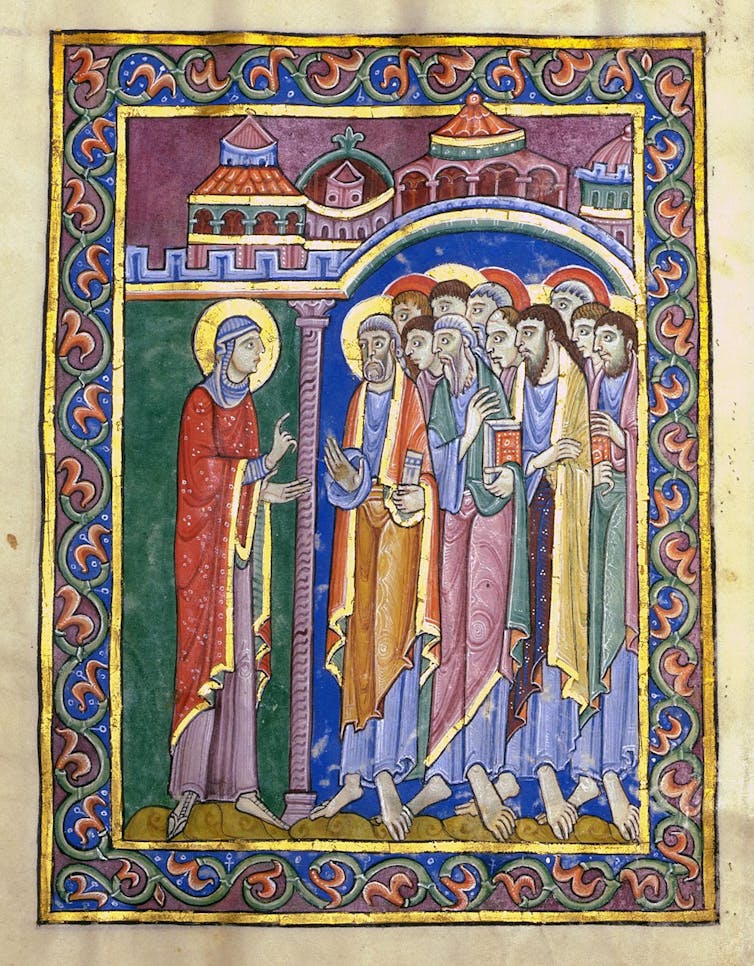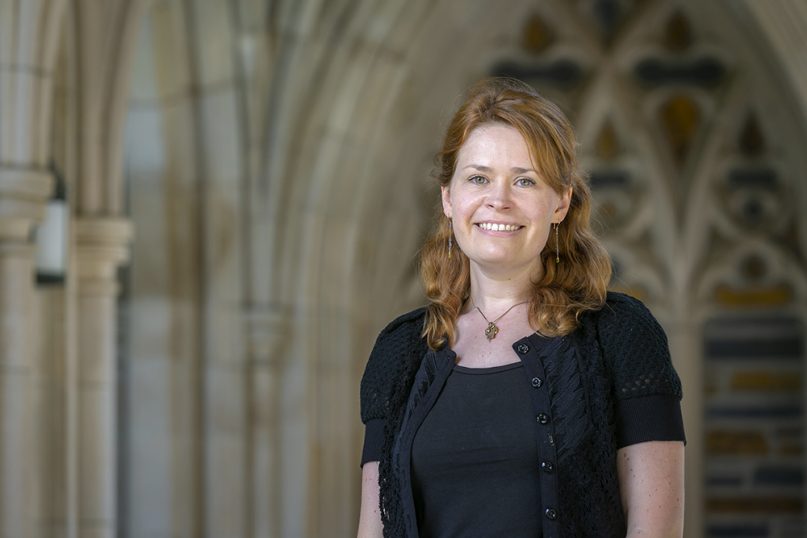
12th Century Mary Magdalene shares the Good News of the Resurrection
A few months ago I wrote about what was then a new film about Mary Magdalene starring Rooney Mara, Joaquin Phoenix, and Chiwetel Ejiofor. Despite the excellent cast is was a dud at the box office and in reviews. It was unfortunate because the movie was an attempt to allow a misunderstood and misrepresented biblical figure to become an actual person who chose to follow Jesus.
Today is the feast day of Mary Magdalene and in keeping with the occasion there was an article in the Religoion News Service about a researcher named Elizabeth Schrader, whose doctoral work is to liberate Magdalene from what she believes arethe patriarchal overlays of ancient Christian scribes who recorded the New Testament’s four Gospels.
To quote from the article:
Schrader’s central discovery, which she wrote about in a paper published by the Harvard Theological Review two years ago, is that Mary Magdalene’s role was deliberately downplayed by biblical scribes to minimize her importance.Specifically, Schrader looks at the story of the raising of Lazarus told in the Gospel of John. In today’s Bibles, Lazarus has two sisters, Mary and Martha. But poring over hundreds of hand-copied early Greek and Latin manuscripts of the Gospel, Schrader found the name Martha had been altered. The scribes scratched out one Greek letter and replaced it with another, thereby changing the original name “Mary” to read “Martha.” They then split one woman into two.Schrader argues that the Mary of the original text is Mary Magdalene, not Martha or Martha’s sister, Mary. The two sisters belong to another story, in the Gospel of Luke, that is not repeated in John’s gospel.
.

Elizabeth Schrader is a Duke University doctoral student in religion. Photo by Megan Mendenhall, Duke University
I haven't the slightest idea whether there is any scholarly credibility to Schrader's contention. Still, I'm impressed by her commitment to liberating this biblical Mary from the false characterization as the rescued prostitute. Although not one of the male twelve, she was a disciple and the first to encounter the Risen Christ. There is a growing movement to recover women's roles in early Christianity after centuries of attempts to minimize or suppress them.
Whatever we feel about saint's days, this is an occasion to uphold these women as faithful witnesses to the gospel. And there is something about this other Mary.

No comments:
Post a Comment